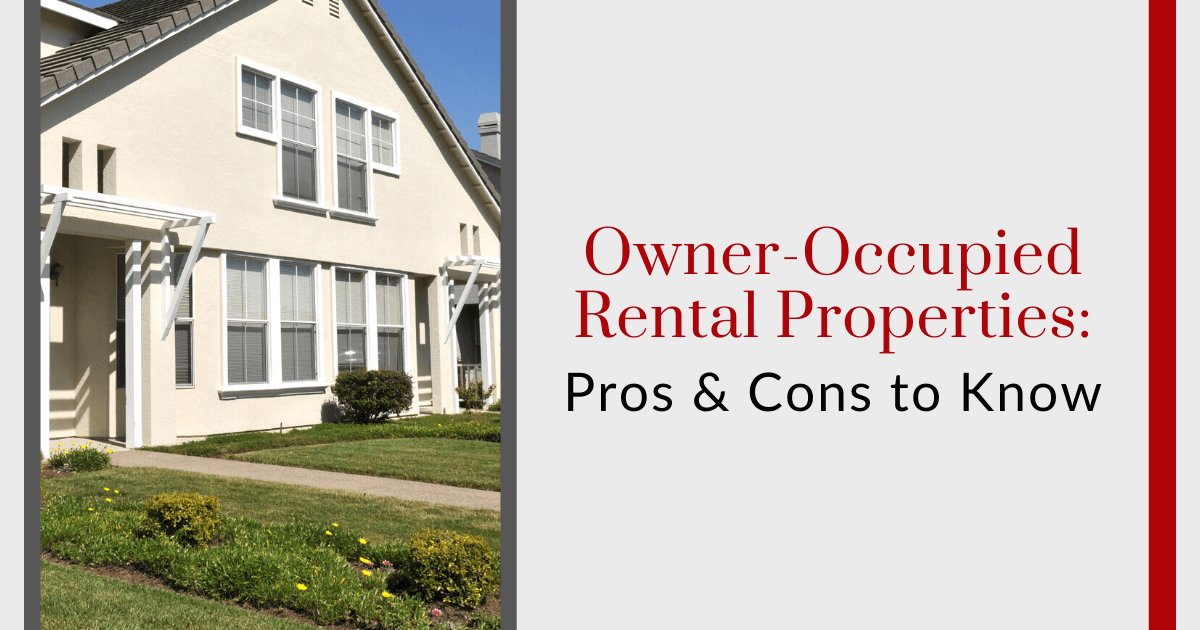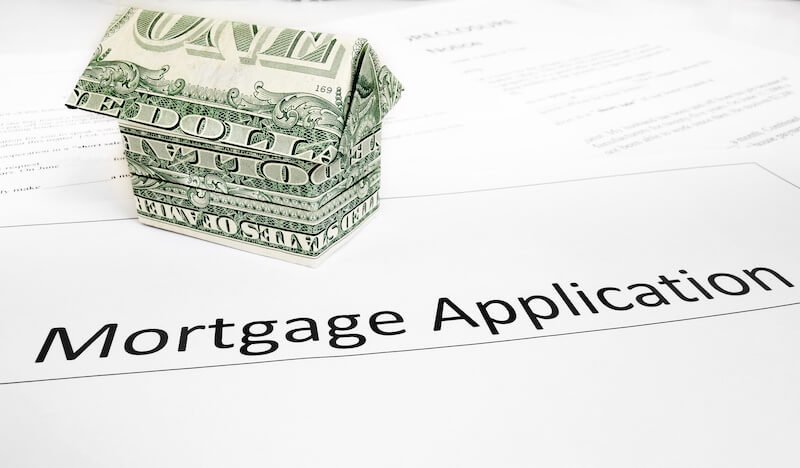Owner-Occupied Rental Properties: 4 Pros & Cons to Know
Posted by Gary Ashton on Wednesday, September 20th, 2023 at 9:36am.

Living in a multi-family investment property is an appealing option for many individuals. This unique arrangement, known as an owner-occupied rental, offers both financial benefits and the convenience of having a home and investment property in one. By residing in a property they own, individuals can save money on housing costs while building equity. Additionally, living on-site allows for greater control of the property, ensuring that any issues or repairs will be promptly addressed.
However, there are also downsides to consider. Sharing living space with tenants can lead to potential conflicts and privacy concerns. Ultimately, the decision to live in a multi-family investment property depends on individual circumstances and preferences. By carefully weighing the pros and cons, individuals can make an informed choice that aligns with their financial goals and lifestyle.
What Is an Owner-Occupied Rental?
An owner-occupied rental is when you, as the investor, choose to live in one of the units while renting out the others to tenants. This arrangement can have its advantages and drawbacks.
There are many good reasons to invest in a rental property, and one of the most significant benefits is the opportunity to generate rental income while also enjoying the perks of being a homeowner. Living in one of the units can save on housing expenses and potentially increase your overall cash flow. Additionally, living on-site allows for greater control and oversight of the property, ensuring you can promptly address any issues or repairs.
However, there are some downsides to consider as well.
- Privacy: Your privacy may be compromised as you live near your tenants. This can lead to potential conflicts or disturbances.
- Future Transition: If you decide to move out in the future and rent out all the units, you will have to transition from being an owner-occupant to a traditional landlord, which may require additional management responsibilities.
- Legal Obligations: Becoming an owner-occupant may also have certain legal obligations. Investors must follow specific rules and regulations to comply with an owner-occupied rental, which can vary depending on the jurisdiction. It's crucial to thoroughly research and understand these requirements before deciding.
Overall, an owner-occupied rental can be a viable option for investors looking to maximize their returns while having a place to call home. However, weigh the pros and cons and consider your circumstances before committing to this arrangement.
Advantages of Living in Your Investment Property
Living in your rental property investment—one of the most common types of real estate investment—can have several advantages. You may be eligible for better terms if you plan to finance your property with an FHA or VA loan. These government-backed loans often offer lower down payment requirements and more favorable interest rates.
Additionally, even if you choose a conventional loan, living in your investment property can still result in better terms and rates than non-owner-occupied properties.
Eligible for FHA & VA Loans

Obtaining an FHA or VA loan becomes a feasible option for potential homebuyers looking to invest in a multi-family property. These loans are specifically designed to assist individuals in purchasing homes, including multi-family properties, often with more flexible terms and lower down payment requirements.
With an FHA loan, buyers can typically secure financing with a down payment as low as 3.5% of the purchase price—while VA loans offer the benefit of no down payment requirement for eligible veterans and active-duty military personnel. This makes it easier for investors to enter the real estate market and generate income from their multi-family property.
Additionally, FHA and VA loans often have competitive interest rates, making them an attractive financing option for those looking to live in their investment property.
Better Terms for Conventional Loans
When financing your multi-family property, conventional loans offer better terms that can give you more flexibility and financial stability. Unlike FHA and VA loans, conventional loans are not backed by the government, allowing lenders to set their own terms and requirements. This means that you may be able to secure a lower interest rate and have more options for repayment terms.
Additionally, conventional loans usually do not require private mortgage insurance once you have a certain amount of equity in the property. FHA loans require mortgage insurance for the life of the loan.
While conventional loans may have stricter qualification criteria, such as a higher credit score and a larger down payment, the potential benefits of better terms and financial freedom make them a viable option for financing your multi-family investment property.
Downsides of Living in Your Rental Property
Living in a rental property can come with its downsides. One of the main drawbacks is limited privacy. Tenants may feel uncomfortable knowing that their landlord lives nearby, potentially invading their personal space. Additionally, living in a rental property can make it more challenging to obtain a loan as lenders often have stricter requirements for investment properties than primary residences.
Limited Privacy
While residing in a multi-family investment property, you might yearn for a bit more privacy due to the proximity of your neighbors. Living in such a property means sharing walls, floors, and ceilings with other tenants, which can result in limited privacy. Investing in a multi-family home involves picking a property size aligned with your investment plans, but planning on residing in one of the units can complicate that decision.
The lack of personal space can be especially challenging if you value solitude or have a noise-sensitive lifestyle. You may find it difficult to relax or concentrate when you can hear your neighbors' conversations, footsteps, or even their television. Furthermore, the constant presence of others in such close quarters can also lead to a lack of control over your living environment.
Your neighbors' habits, such as loud music, frequent guests, or unconventional schedules, may disrupt your daily routine and make it harder to feel at ease in your home.
More Challenging Loan Requirements
If you're considering moving into a multi-family investment property, be prepared for the more challenging loan requirements that come with it. Lenders often have stricter criteria for financing multi-family properties compared to single-family homes, so in certain situations, it would be simpler to convert your home into a multi-family home than to buy one.
Lenders often view multi-family properties as a higher-risk investment due to the potential for multiple tenants and income streams. You may need a higher credit score, a larger down payment, and a lower debt-to-income ratio to qualify for a loan. Lenders also typically require a more detailed financial analysis of the property to ensure that it will generate sufficient rental income to cover the mortgage payments.
While these requirements can make obtaining a loan challenging, they are necessary to protect the lender and ensure the long-term financial viability of the investment property.
Weigh the Pros and Cons
Living in a multi-family investment property can have both advantages and disadvantages. On the positive side, it allows owners to save on living expenses and maintain better control over their investment. However, it also presents downsides, such as a lack of privacy and potential conflict with tenants. Ultimately, the decision is based on individual preferences and circumstances, so it's important to carefully weigh the pros and cons before deciding.

Gary Ashton
The Ashton Real Estate Group of RE/MAX Advantage
The #1 RE/MAX team in the World!
